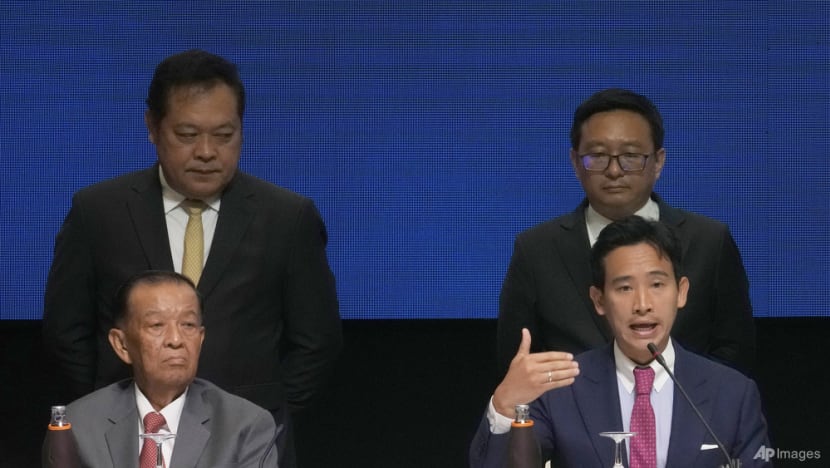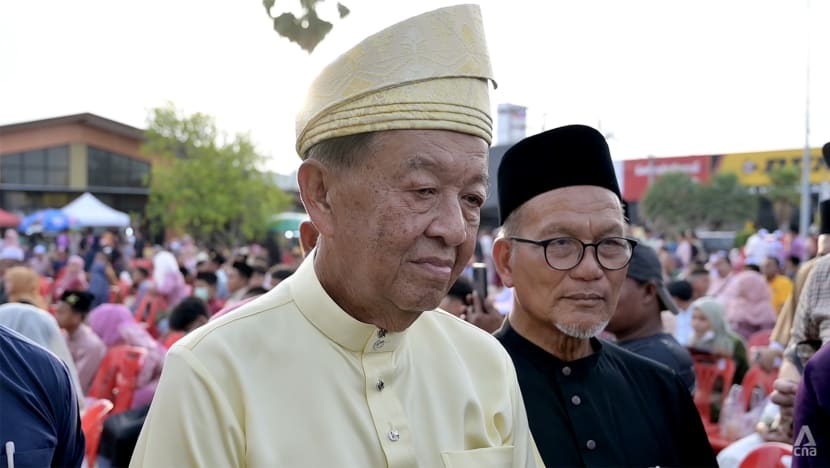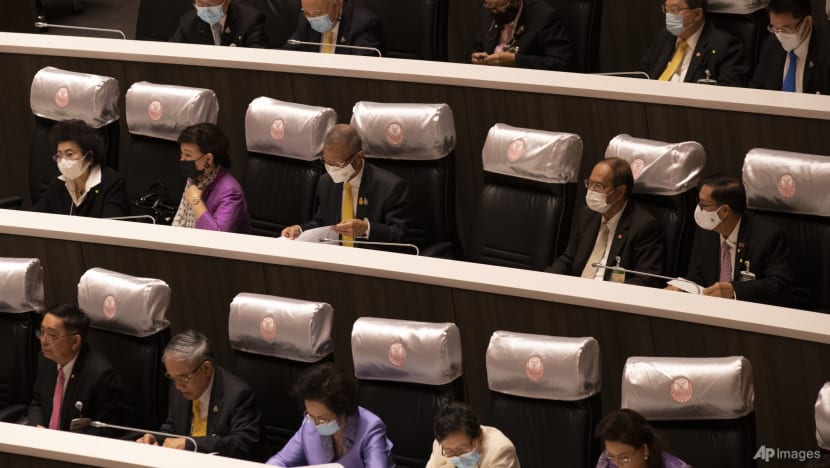New Thai House Speaker could pave way for Move Forward’s Pita Limjaroenrat to become prime minister, but challenges remain: Analysts
Prachachat Party leader Wan Muhamad Noor Matha assumed the top post of the country’s legislative branch, after he was nominated on Tuesday (Jul 4) without any other contender.

The choice of Thailand’s new Speaker of the House of Representatives is a good compromise between the Move Forward Party and Pheu Thai, following the two parties’ disagreements over who should fill the role, said analysts.
The development may also give Move Forward leader Pita Limjaroenrat’s prime ministerial ambitions a boost, as the country’s senators may be more inclined to support him for the top job.
Prachachat Party leader Wan Muhamad Noor Matha assumed the top post of the country’s legislative branch, after he was nominated on Tuesday (Jul 4) without any other contender.
Observers told CNA the veteran Muslim politician from Thailand’s far south is widely respected and enters the role with much support from all around.
But challenges remain for Mr Pita as establishment forces opposed to his party's radical reform proposals may block him from becoming the next prime minister, and even deny Move Forward a role in the next government.
“It is possible that if he becomes prime minister, that he could then be disqualified afterwards,” said Dr Kevin Hewison, Weldon E Thornton Distinguished Professor of Asian Studies at the University of North Carolina at Chapel Hill.
A GOOD DECISION
Prof Hewison said the choice of Mr Wan Muhamad for the House Speaker position is “a good one”.
“It's definitely a compromise, because the two parties Pheu Thai and Move Forward have been unable to agree on the position of Speaker,” he told CNA’s Asia First.
Noting that the Speaker’s position is incredibly important, Prof Hewison said Mr Wan Muhamad brings with him prior experience, having served in that role previously between 1996 and 2000.

He is currently the leader of the Prachachat Party, one of eight parties in a coalition aiming to form the next Thai government.
“He's respected by a wide range of people. Recently in a meeting of the coalition’s parties, he spoke strongly for democratic reform and this, I think, endeared him to a lot of Move Forward Party supporters as well,” said Prof Hewison.
“So he comes into the job with plenty of support.”
Professor Thitinan Pongsudhirak, director of the Institute of Security and International Studies at Chulalongkorn University, said Mr Wan Muhamad is a veteran politician in the twilight of his political career, so his reputation is at stake going into this role.
He added that the choice of House Speaker has “never been controversial” in Thai political history.
“The largest winning party would be the Speaker typically, but there've been a few exceptions. This time, we've had the most contested House speakership in the political history of Thailand,” he told CNA’s Asia Now on Tuesday.
PITA’S PATH TO TOP JOB
With Mr Wan Muhamad as House Speaker, it may also clear the path for Move Forward’s leader Mr Pita to become the country’s next prime minister, said Prof Hewison.
Move Forward won an unexpected victory in the general election on May 14.
It has the most radical policy agenda of any party that contested the polls, proposing reforms to the military and amending of the lese majeste law, which makes it a crime to defame, insult, or threaten the monarch.
“It's the Speaker who sets the agenda for which pieces of legislation and which debates come on, and that may appease some senators who are concerned about the Move Forward Party’s agenda, particularly on article 112 or the lese majeste law, which they want to reform (and) change,” explained Prof Hewison.
The choice for the top job is made jointly between the 500-seat elected House of Representatives and the 250-seat appointed Senate.
Mr Wan Muhamad is in a position to prevent the bills from moving forward in parliamentary sessions, should he or other parties in the coalition decide against them.
That may suggest to some senators that they could support Mr Pita for prime minister, said Prof Hewison.
However, he noted that Mr Pita’s path to the top job is “still very difficult”, as he faces challenges such as outstanding allegations over his holding of shares in a media firm.
Mr Pita could be disqualified from the premiership, as section 98 of the constitution prohibits individuals from running in an election of Members of the House of Representatives if they are shareholders of any newspaper or mass media business.

“The old guard in Thailand clearly doesn't want him, and one way or another, they want to get rid of him,” said Prof Hewison.
He said the case is likely to be sent by the election commission to the constitutional court, which has in the past been “very outspoken on dealing with people it sees as opposing the notion of democracy with the king as head of state”, noted Prof Hewison.
That process could take anywhere from a few days to a few months, he added.
Prof Thitinan said Mr Pita faces “all kinds of roadblocks” in his efforts to become prime minister.
“We've seen this over the last two decades. We had a sitting prime minister who was disqualified for hosting a cooking show,” he said, referring to former leader Samak Sundaravej’s ousting in 2008.
“We've had party dissolutions and disqualifications of top leaders, party leaders, and so on … So Pita is the next one, basically,” said Prof Thitinan, who added that the establishment forces working against Move Forward and Mr Pita are “very powerful”.
ROLE OF THE MILITARY
One of the things that the coalition parties have agreed to is to continue pursuing military reform, something which will worry the military as they undergo a change of leadership in the next few months, said Prof Hewison.
“The military has been reasonably quiet publicly, but they would have been watching these events very closely,” he said.
“It's become clear that one of the things they are concerned about is demonstrations or protests if Pita’s path to the prime ministership is blocked, and they are preparing security measures to cope with that.”
He added that past episodes have shown that such disruptions give the military a way back into politics.
“If there is a systematic attempt to exclude Move Forward from the government, and then Pheu Thai forms a coalition with the other pro-military pro-establishment parties, then the Move Forward support base will be very unhappy,” said Prof Thitinan.
“You imagine, 14.4 million voted for them on the proportional representation system. They were the largest winning party. How can the largest winning party be systematically excluded from government?”
Prof Thitinan added that in most countries, a government would have already been formed after almost two months since an election.
“We should have had a government by now, and the largest winning party, the Move Forward Party, should have been leading the coalition government with Pita as prime minister,” he said.
“But because of the tricky business in Thai politics that we've seen over the last two decades, that has not been the case. There's been some foot dragging, there's been some trickery, some negotiations behind the scenes, and some involvement of the powers that be.”
Prof Thitinan said he “would not be surprised” if Move Forward is denied the prime ministerial position, and eventually denied a role in the coalition government altogether.














